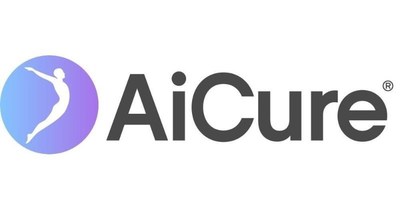While medication non-adherence in clinical trials has been widely recognized as a challenge in drug development1, reported non-adherence rates have been largely anecdotal, isolated to individual studies, and varied widely in their estimations
|
NEW YORK, June 15, 2020 /PRNewswire/ -- While medication non-adherence in clinical trials has been widely recognized as a challenge in drug development1, reported non-adherence rates have been largely anecdotal, isolated to individual studies, and varied widely in their estimations2. A recently published study from Tufts' Center for the Study of Drug Development (CSDD) and AiCure, an AI and advanced data analytics company focused on improving clinical trials, identified and quantified the scope of intentional non-adherence to clinical trial drugs. Published in Therapeutic Innovation & Regulatory Science (TIRS), the research is the first adherence study to obtain data from directly observing dosing patterns among participants via computer vision and AI. Leveraging insights captured by AiCure's proprietary medication adherence platform, the researchers deciphered between intentional and unintentional non-adherence, as well as identified factors predictive of noncompliance. By presenting a baseline measurement of overall non-adherence in clinical trials, the research helps to inform best practices to lower, and ultimately prevent, deliberately non-adherent behaviors. The study, entitled "Assessing the Scope and Predictors of Intentional Dose Non-Adherence in Clinical Trials," consisted of nearly 260,000 anonymized dosing results captured through AiCure's platform, which were drawn from 2,796 study volunteers participating in 23 different clinical trials of nine psychiatric, neurological and neuromuscular diseases. The study's key findings include:
"As the pharmaceutical industry faces intensifying pressure to optimize the drug development process, adherence and precise dosing over the course of a clinical trial are critical to achieving an accurate assessment of a treatment's efficacy and effects as quickly and safely as possible," said Ed Ikeguchi, M.D., CEO of AiCure. "Today trial sponsors need to recruit a greater number of patients to combat the effects of non-adherence on trial results. This study's findings inform a path to potentially shorter, more streamlined trials, which could not only lead to cost savings but also help bring life-saving drugs to patients faster." Understanding Non-Adherence Addressing the Impact of Non-Adherence In addition to the publication in TIRS, Ken Getz, Deputy Director and Professor at the Tufts' CSDD, and Marlen Rattiner, AiCure's Vice President of Product Management, will present the study findings at DIA Global Annual Meeting on Monday, June 15th. Learn more about their presentation here. About AiCure Media Contact 1 Gosse L, Tubach F, Dougados M, Ravaud P. Reporting of adherence to medication in recent randomized controlled trials of 6 chronic diseases: a systematic literature review. Am J Med Sci. 2007;334(4):248–54.
SOURCE AiCure |






